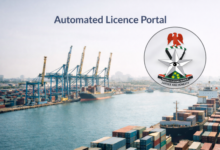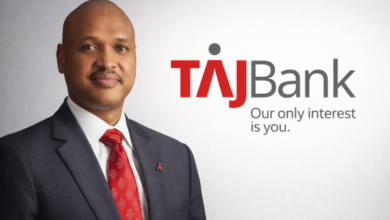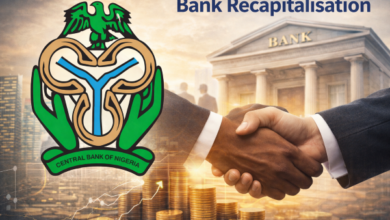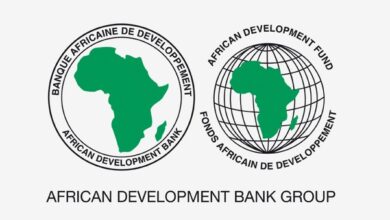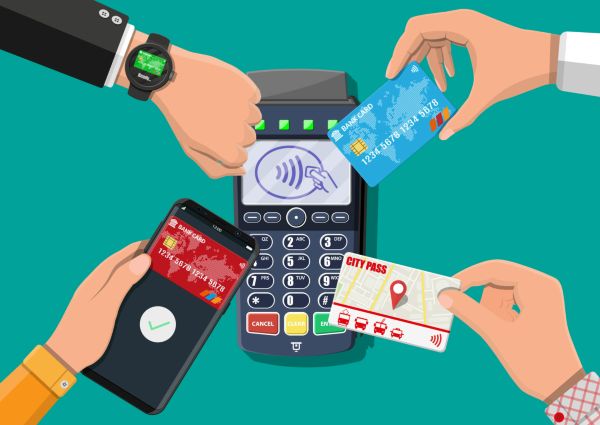
By Bushrah Yusuf-Badmus
At exactly 8 a.m. in Ilorin’s bustling Yoruba Road market, Madam Feyisara Solade faced a dilemma that captures the crisis at the heart of Nigeria’s cashless drive.
A loyal customer, Bilikis Ibrahim, wanted to pay N50,000 by transfer for goods.
But for Solade, every digital payment eats into her slim profit margins.
Therefore, she had insisted on receiving only cash payments for purchases of N10,000 and above due to the multiple charges.
These charges include electronic money transfer levies, commission on transfers, and value-added tax, among others, often imposed on users of digital payment platforms in the country.
However, her long-time customer insisted on making a transfer for goods worth almost N50,000 without adding up these charges.
In the end, Solade had no option but to rescind her decision for a customer she said had been a patron for years.
“I had no choice than to accept the payment mode, notwithstanding my previous stand.
“This is because she is one of my loyal customers and I cannot count the number of referrals I have gotten through her.
“But if I am to look at it holistically, it was not to my advantage at all. I just did it to retain an old customer,” the trader said.
This quiet frustration is becoming the norm for small-scale traders in Kwara, who feel trapped between holding onto customers and losing hard-earned income to mounting bank charges.
Her neighbour, Madam Taiwo Jolayemi, has devised her own survival strategy.
She accepts transfers only under N10,000 without complaint, but for anything above, she insists customers pay extra.
“I ran into a loss when the policy was introduced because the N50, N100 means a lot in this business. I prefer to hold onto my cash because withdrawing money when needed will amount to additional charges again,” she said.
Even civil servants, who are not traders, are learning to “game” the system.
At the Federal Secretariat in Ilorin, Mr Lawrence Philips said he often breaks large transfers into multiple N9,999 payments to dodge the N50 Electronic Money Transfer Levy (EMTL).
“The banks keep operating as if they have a target to meet. Once you initiate a transfer, you are surcharged, and the receiver is also surcharged. That’s unfair.
“Even when you use USSD, you pay N6.98, and sometimes the transaction fails but the deductions remain. It enriches the banks and government but impoverishes customers,” he lamented.
For Miss Perpetua Collins, a Level 8 officer, the charges are no longer a nuisance, but a burden.
“I calculated my charges for one month and they totaled nearly N15,000. That’s someone’s food budget. It makes poor people poorer, because you lose more money keeping it in the bank than spending it,” she bemoaned.
When the Central Bank of Nigeria (CBN) introduced the cashless policy in 2012, the goal was clear: reduce cash dependency, encourage digital payments, and deepen financial inclusion.
The surge in cash dealings had created multiple challenges, including high handling costs, security risks, and inefficiencies within the payment system.
The policy was therefore designed to reduce dependence on physical cash and promote the use of electronic payment channels as safer and more efficient alternatives.
It also aimed to modernise Nigeria’s financial sector in line with global practices.
Before its rollout, however, the Nigerian economy was still overwhelmingly cash-driven.
Estimates showed that about 90 per cent of all transactions were conducted using physical money.
By 2023, the policy seemed to be working.
Nigeria recorded N600 trillion in electronic transactions, up 55 percent from the previous year.
Financial analysts insist that more digital transactions lead to better financial inclusion and a stronger economy.
Notwithstanding these benefits, multiple transaction levies, charges, and taxes tell another story about the adoption of this component of digital public infrastructure.
These charges include the Electronic Money Transfer Levy (EMTL), stamp duty, ATM withdrawal fees, and other bank charges such as account maintenance fees, interbank transfer fees, SMS alerts, USSD usage, and ATM card replacement.
For a transfer of N10,000, there is a N50 EMTL charge on part of the receiver, notwithstanding the varied transfer commission on the sender.
Similarly, stamp duty on deposits, account maintenance fees, USSD charges (N6.98 even for failed transactions), ATM withdrawal fees, and card issuance and maintenance all add up.
For instance, in June and July 2025 alone, the EMTL generated N29.1 billion and N37.6 billion respectively, according to Federation Account Allocation Committee (FAAC) figures.
This money comes from Nigerians like Solade and Jolayemi, whose margins can hardly bear the weight.
What was once hailed as progress has become, in the words of experts, a hidden tax on the poor.
Nearly 15 years into the introduction of the policy, statistics show that the adoption rate has grown exponentially.
According to CBN, around 60 percent of Nigeria’s population participated in digital payments in 2023, alongside a surge in online banking and e-commerce.
Records also show that electronic transfers dominate the market, driven by platforms like NIBSS Instant Payments (NIP), and the introduction of the eNaira aims to further expand digital adoption, especially among the 18–34 age group.
The reason behind this surge is clear: Nigerians now find it easier, more convenient, and safer to carry out transactions electronically.
However, these benefits come at a price that is increasingly unaffordable for the very people the policy aims to uplift.
The electronic transfer charges are generating revenue for the government, but at the expense of ordinary citizens.
A taxation expert, Prof. Khadijah Yahaya, Coordinator of the Society of Women in Taxation (SWIT) in Kwara, warned that while charges like the EMTL may boost government revenue, they risk reversing gains in financial inclusion and digital payment adoption.
“It has positive effects in terms of revenue generation for the banks and indirectly for the federal government.
“It enhances digital infrastructure because monies collected from e-banking charges can be used to develop digital systems, supporting behavioural change toward digitalising the economy.
“Nonetheless, the negative impacts are high because the charges are numerous,ranging from SMS alerts, transfer charges, money receipt charges, account maintenance fees, VAT, ATM withdrawal fees, among others.
“This will make it less appealing for people to digitalise their transactions; they will prefer to hold onto their cash,” she said.
She explained that business people with tight profit margins prefer cash, which erodes trust in the financial system.
“They will not want to embrace the cashless policy. As such, there will be an increase in cash transactions, and unclear multiple charges can further erode trust in the financial system,” she said.
Yahaya advocated a policy reflection to harmonise e-charges so the burden of a cashless economy is not placed on the masses.
“There is a need to create awareness and ensure transparency about the charges. Let the people have value for what they are paying for.
“When there is value for the service, people will be ready to pay, but when trust is lost, people will not yield,” she posited.
Sharing a similar view, Mr Emeka Nsikak, a renowned financial expert, said, “Charging both the sender and receiver amounts to double taxation.
“When you tax people heavily without tangible benefits in roads, water, electricity, it becomes problematic”.
Nsikak acknowledged that electronic payments reduce the high cost of printing naira notes and help businesses access credit.
He insisted, however, that reforms are overdue.
“The CBN must not allow banks to profit endlessly at customers’ expense. Charging for ATM card issuance and then still charging ‘card maintenance’ is wrong. Even SMS alerts are the bank’s responsibility, not the customer’s”.
As Nigeria pushes to expand its digital public infrastructure, experts warn that rising charges could push millions back into the informal cash economy.
For Solade in Ilorin, the question is not about national policy but survival. Every N50, every N100 shaved off her earnings makes the difference between restocking her stall or stalling her business.
In conclusion, Stakeholders warn that Nigeria’s cashless economy cannot thrive if digital transactions remain costly.
They added that reducing excessive charges, harmonising fees, and ensuring transparency will protect citizens, build trust, and boost adoption nationwide. (NANFeatures)
News Agency of Nigeria.



